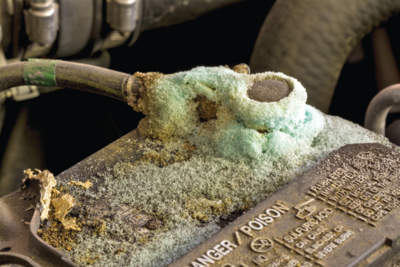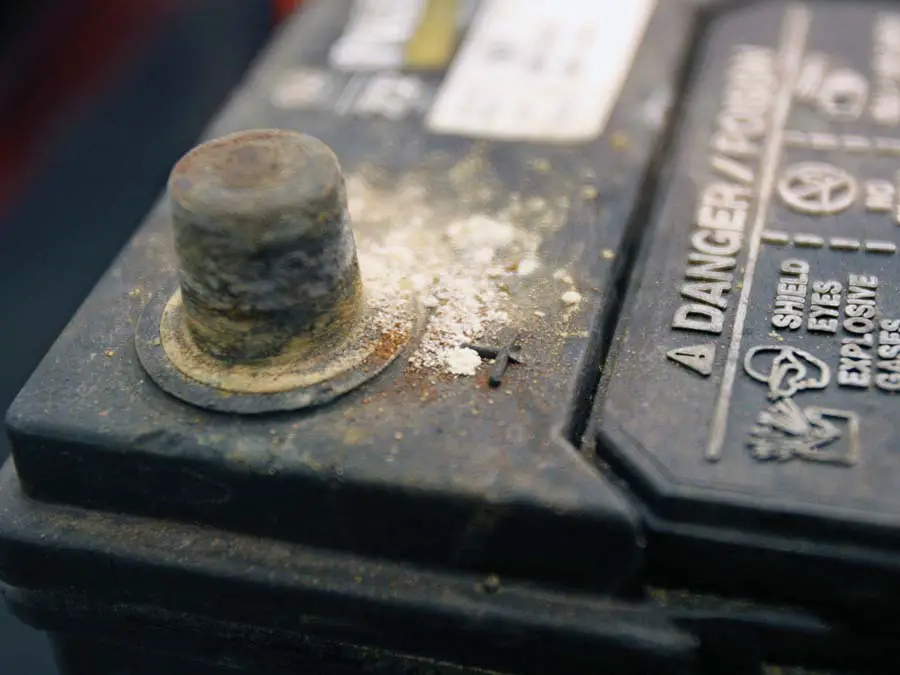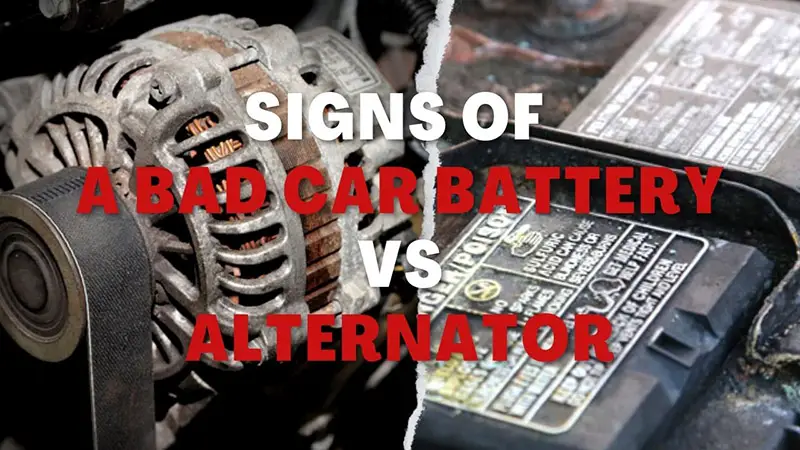You could have a sulfated battery if your lead acid battery fails, but what is it exactly, and is it entirely avoidable? Let’s find out the reason and the solutions in this article.
What Does Sulfated Mean On A Schumacher Battery Charger?
A sulfated battery refers to an accumulation of lead sulfate crystals. It is the main reason for the lead-acid malfunction and battery damage. Degradation from batteries sulfation is entirely avoidable and, in certain situations, reversed.
Sulfation happens when a battery is not at full charge level, accumulating and lingering on the battery cells. If too much sulfation deposits, it could hinder the chemical to electrical conversion. As such, it will significantly influence battery capacity.
What Causes A Sulfated Battery?
As part of the usual chemical reaction of a charge, lead-acid batteries will collect sulfation over time. Permanent battery sulfation is frequent in lead-acid types. Besides, any minor lead sulfate crystal forms will dissolve during normal charging.
It could cause major problems if you overcharge the battery. Also, damage can occur when you leave the battery not fully charged or keep it at temperatures exceeding 75 degrees.
What Are The Effects Of A Sulfated Battery?
Prolonged charging periods and excessive heat build-up might occur when sulfates accumulate. Furthermore, decreased charging times, battery efficiency, and battery breakdown might be detected.
Sulfation causes a considerable loss in cranking performance and affects the battery cycle-life. When trying to ignite your automobile, you could find that the battery fails. Sulfation also raises the likelihood of boil over, which occurs when acid boils and spills over the battery.
Sulfation also reduces your battery’s functional running times among charges. Any above factors might cause a battery system to die sooner than intended.
How To Fix A Sulfated Battery

Permanent Sulfation
Even a professional cannot restore sulfation degradation if a battery suffers low charge for an extended period.
However, the degradation will develop permanent sulfation after periods of time. The combustion response will cause the lead sulfate crystals to revert to sulphuric acid and lead. Although these could be rescued, regeneration is quite uncertain.
Reversible Sulfation
Reversible sulfation is addressed by delivering an excess of a controlled charge voltage of roughly 200mA to a full battery. For around 24 hours, the output correct voltage is permitted to grow somewhere between 2.50 and 2.66V/cell.
Raising the battery heat to 122-140°F during the remedial operation will improve the crystal dissolution.
Anti-sulfation systems can provide bursts to battery terminals to avoid and repair sulfation on a normal cell. However, they do not reverse the deterioration and are not usually advised.
Using A Battery Desulfator
The sulfation develops due to undercharged batteries. Reversing the procedure becomes difficult for a converter to complete on its own.
Yet, a cell desulfator can be used to restore adequate levels. A desulfator can remove any sulfate crystals by subjecting the batteries to high-voltage surges.
How To Prevent Sulfated Battery
You should regularly maintain the battery and clean the terminal to avoid the accumulation of sul on the battery charger. It also helps to prevent battery malfunctions. Additionally, you should store batteries at room temperature, around 65-70°F.
If the battery is subjected to higher temperatures for a long time, it will increase the rate of electricity transfer. Problems with the operation of the components also occur.
In addition, you should not let the battery drain or disconnect the charger when the battery is not full. It will significantly reduce the battery life.
A depleted battery will make it more susceptible to sulfation and is difficult to reverse. Therefore, battery maintenance and sufficient charge are necessary for a healthy battery.
Can You Charge A Sulfated Battery?
Yes, but you might need to raise the power to break down the hard lead sulfate crystals. If the battery temperature rises over or above 125° F, you should consider stopping the charging process and cooling down the battery before resuming.
Finally, you may cycle the battery, deplete it to 50%, and then recharge it for several cycles to evaluate its endurance.
Conclusion
In short, sulfated battery refers to a lead-acid complete battery failure due to lead sulfate crystals accumulation. It can cause potential battery damage, but it could be fixed thanks to the reversed process. Hope you found this post useful, and see you in the next ones.










0 Comments